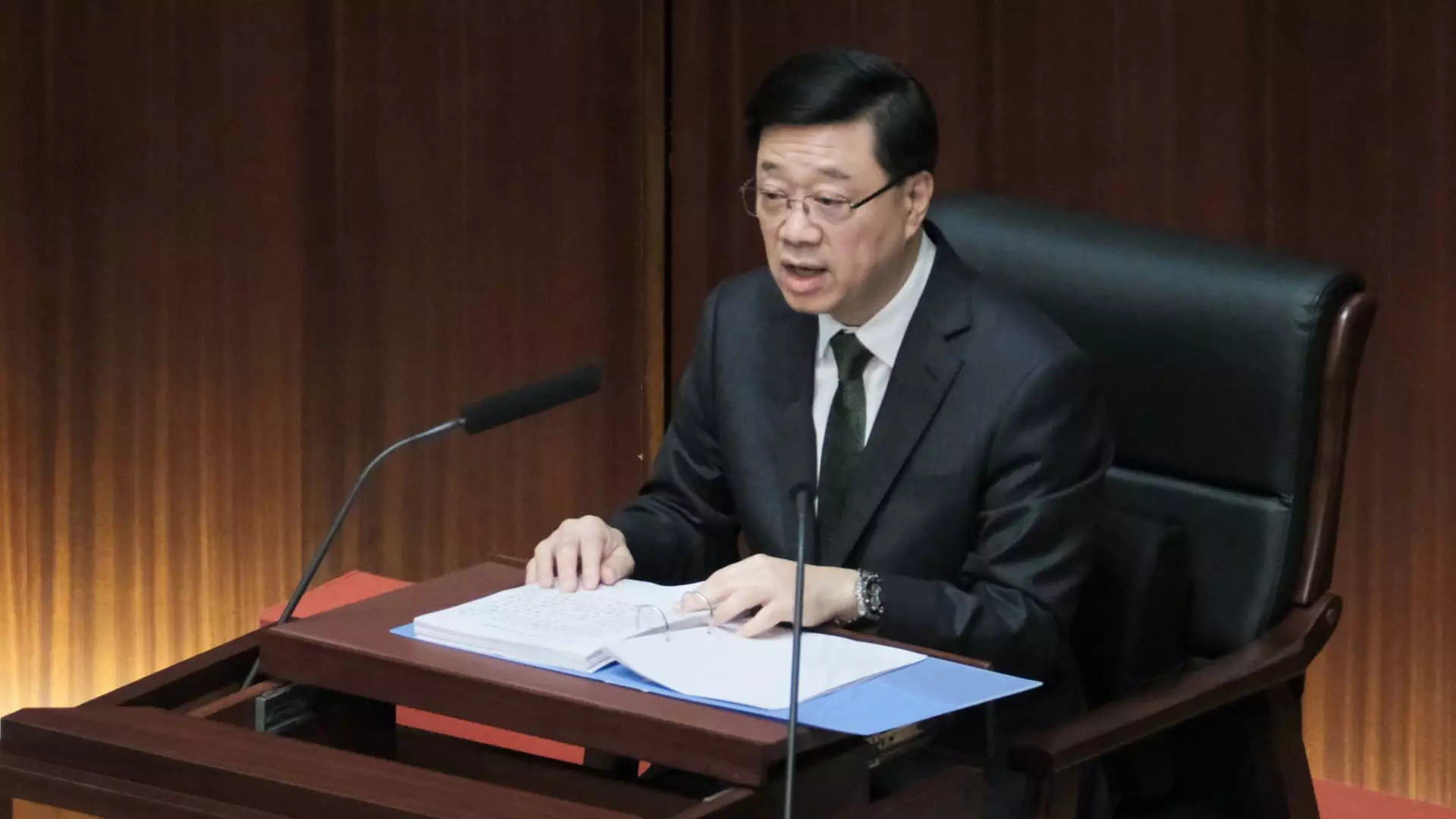In a recent annual policy address, Hong Kong’s Chief Executive, John Lee, confronted the pressing issue of housing affordability, labeling it as a “great public concern.” This acknowledgment is particularly significant given the mounting housing crisis that has plagued the city for years, making home ownership an elusive dream for many residents, particularly the youth. The measures announced reflect an urgent need for reform in a housing market saturated with challenges, such as excessive prices and inadequate living conditions.
Central to Lee’s address was the launch of initiatives specifically aimed at citizens under 40. The proposal to allocate an additional ballot number for young applicants under the subsidized Home Ownership Scheme is a strategic move aimed at boosting their chances in a competitive housing landscape. This demographic has been disproportionately affected by soaring property prices, often leading to a conundrum where young individuals might limit their career growth to maintain eligibility for public housing programs.
Furthermore, the increase in the quota for the “White Form Secondary Market Scheme” is designed to relieve some of the pressures faced by young people hoping to transition into home ownership. Each of the additional 1,500 units, reserved for applicants under 40, may provide them with a viable path to securing affordable housing without the burdensome costs typically associated with entering the private sector.
Alarming statistics reinforce the urgency of these measures. The 2024 Demographia International Housing Affordability report has consistently ranked Hong Kong as the least affordable city for housing globally for over a decade. This unfortunate distinction is exemplified by the commonplace existence of “shoe-box sized” subdivided flats, frequently linked to health and safety hazards. These cramped living conditions paint a stark picture of life in a city where the aspirations for a comfortable home are continuously thwarted by market realities.
Responding to such conditions, Lee’s administration is introducing a new regulatory framework for subdivided flats. The transformation of substandard units into “Basic Housing Units” aligns with much-needed reforms in housing standards in Hong Kong. Adequate living conditions, including the provision of windows and toilets, must be reinforced as a non-negotiable aspect of housing policy.
One of the most crucial aspects of Lee’s policy address was the commitment to increase the supply of public housing. The government’s aim to complete around 9,500 new public housing units next year, ultimately targeting a total of 30,000 units by 2027-2028, signifies a proactive approach to alleviate the current backlog. Currently, prospective residents face a long waiting period of 5.5 years—which could see an improvement down to 4.5 years by 2026-2027, indicating a responsive timeline to address the backlog.
Though the plans laid out are ambitious, the historical context of Hong Kong’s housing crisis cannot be overlooked. Previous administrations have struggled to implement initiatives effectively, often falling short of the ambitious targets set. The real test will be in execution and tangible outcomes that genuinely reflect the needs of the crisis-stricken populace.
Lee’s latest policy address marks a shift in focus from previous years, where national security and COVID-19 recovery dominated discussions. While these issues remain critical, the heightened emphasis on improving living standards and addressing housing affordability reflects a recognition of the fundamental concerns of Hong Kong’s residents. The effectiveness of these measures will depend heavily on the government’s commitment to follow through with implementation strategies and allocate the necessary resources to create a genuinely affordable and livable city for all its inhabitants. As the situation continues to evolve, the public will be watching closely, hopeful for lasting changes in policy that truly prioritize the needs of the people.

